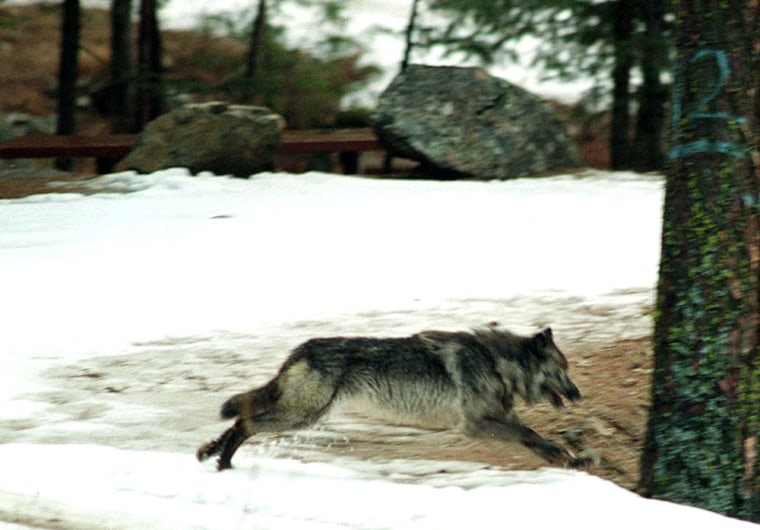Pitting memories of wolves howling at the moon against dead cattle and failing ranches, more than 150 people drove from across the state Tuesday evening to voice their opinions on the proposed removal of gray wolves in the northern Rocky Mountains from the federal endangered species list.
Backers of the delisting process say the wolf recovery effort in the northern Rockies has been a wild success, and it's time to take the animals off the list before they do damage to the state's livestock industry and wild elk herd.
But most of the testimony was against removing the animals from the list, calling it a politically driven decision that would undo all the progress made in the state over the last 11 years.
Wolves were reintroduced to the northern Rocky Mountains after being hunted to near-extinction, and now number more than 1,200 in the region. The region where wolves would no longer have federal protections would include all of Idaho, Montana, eastern Washington and Oregon and a small sliver of northeastern Utah.
The predators have thrived in Idaho since 35 of them were reintroduced in 1996 and far exceeded federal recovery goals. Now, there are estimated to be more than 700 living in the state's backcountry, with 46 breeding pairs.
Those who back delisting say that's more than enough to keep the wolf population healthy, and the process has been a long time coming.
Debbie Lord, who raises cattle in the Danskin Mountains area, said she lost two calves to wolf attacks, and would have lost another, had it not been discovered by her teenage daughter.
"I don't hate wolves, I don't want to kill them all, but I do want the opportunity to be able to protect my cattle," Lord said.
Others said the process was coming too soon, particularly in a state where elected officials have said they strongly favor controlling the population. Gov. C.L. "Butch" Otter recently said he wants to hunt the current population down to 100 wolves, and that he will be first in line to purchase a tag to kill one of the animals.
"Basically, what's going to happen is there's going to be a scorched earth policy with hunters as tools," said Katie Fite, biodiversity director with the Western Watersheds Project.
The delisting couldn't come soon enough for Mike Keithly, 59, who lives north of Cascade. Those who don't want to see the animals off the endangered species list should visit his town, where he says he carries a loaded weapon to fend of potential wolf attacks, and once shot an animal that went after his dogs.
"I'm right behind Mr. Otter, I want the next one," Keithly said. "I would say delist them to zero."
